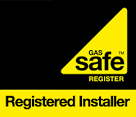Is your Unvented cylinder safe ?

Unvented hot water cylinders are great systems. They provide instant hot water and eliminate the need for a cold water tank which is a big benefit for properties that are limited on storage space.
Many people are however unaware that these systems need regular servicing. Unvented systems are highly pressurised and it is important to maintain all of the safety features to keep your system safe, just as you would with a gas boiler. Please view this document from the government-run hot water association regarding servicing guidelines
https://www.hotwater.org.uk/uploads/5C47186993739.pdf
Since their introduction to the market in the early 80´s unvented hot water cylinders have become extremely popular among UK homeowners. As with anything, these systems have positive and negative characteristics. The main concern with unvented systems is that when it’s heated, water expands, and in a system which already operates under extreme pressure, this creates a risk of an explosion. This risk can be dealt with by properly looking after the safety features of the cylinder.
Below we have covered 5 signs that you should look out for that will indicate that you have a problem with your Unvented system. We have also included some tips on best practices to maintain a safe and well functioning system.
5 Signs to look out for
1 – Strange noises from your unvented system
Water expands within the cylinder when it gets hot and this often causes noise which is normal. However over time due to the build-up of debris will cause these noises to become more frequent and louder. It is important to flush your system to avoid this from getting worse and ensure that your system functions properly.
2 – No or limited hot water
If you see a drop in the available hot water or you are getting no hot water you should firstly check the temperature on the cylinder. In cold months the system will have to work harder to provide your hot water requirements at these times the dial should be set to correct. If this does not solve the problem, the cylinder may be too small for your needs. You should also check for a leak that may be affecting the performance of your system.
3 – Water is too hot
If your system is producing water that is too hot even when the temperature is turned down then this is a sign that you have a problem with the pressure relief valve. This is a dangerous problem as you could end up with boiling water being delivered through the shower, for example, causing injury. You should contact a qualified heating engineer to assess the problem as soon as possible.
4 – No water
You have a problem with your filter if your system is producing no water at all. This is usually because it is blocked by debris, it is not a big problem to fix but needs to be done by a qualified engineer.
5 – Smelly water
When your systems anode rod becomes faulty it will result in a build-up of sulphates which will lead to foul-smelling hot water. If you are also getting the same smell with cold water the cylinder may not be at fault and it could be the mains water supply.
Follow these tips to maintain a safe system:
1 – Keep the area around your heater free of paper or other combustibles
2 – If stored in the garage and near a vehicle, it is best to elevate the heater to a minimum of 12 inches off the floor to avoid the potential contact of flammable gas coming in contact with the pilot light.
3 – We recommend installing an automatic gas-shutoff valve. This automatically stops the flow of gas if gas flow increases dramatically, due to fault or other unforeseen reasons such as flooding. This is a preventative measure that eliminates the risk of fire.
4 – Never use insulation or cover the draft hood or flue vent of your natural gas heater.
5 – Get your hot water system serviced every year by a qualified gas safe engineer. You can view our boiler service here

Important Links
Get in Touch
9 Seymour Av, Worcester WR3 7LT
01905 412889
admin@lmplumbersworcester.co.uk
